A portion of this book has appeared in The Atlantic. Copyright 1978 by David Macaulay ALL RIGHTS RESERVED For information about permission to reproduce selections from this book, write to Permissions, Houghton Mifflin Harcourt Publishing Company, 215 Park Avenue South, New York, New York 10003. www.hmhco.com The Library of Congress has cataloged the print edition as follows: Macaulay, David. Great moments in architecture. 1. ArchitectureCaricatures and cartoons.2. I. Title. NC 1429. NC 1429.
M 15 A 46 720'.9 77-15490
ISBN 978-0-395-25500-1
ISBN 978-0-395-26711-0 PBK . eISBN 978-0-547-34864-3
v2.0315
P REFACE
The incredible oeuvre upon which you are about to gaze represents the first serious attempt to assemble between two covers the generally misunderstood and frequently misrepresented drawings of the distinguished twentieth-century draftsman and amateur historian David Macaulay. Although the works of this hitherto neglected artist crystallize the formal and intellectual preoccupations of generations of quintessentially disillusioned visionaries, many of the plates have lain untouched for years. Those that surfaced periodically were more often than not the victims of a misguided aestheticism. It was not until September of 1976, while still in the grip of a burning fever, that Judith York Newman, Curator Emeritus of SPACED Gallery of Architecture in New York City, insisted rather violently that an effort be made to gather and display as definitive a collection of the works as possible. Upon her suggestion and out of deference to her seniority the SPACED staff began months of careful research, weeks of painstaking compilation, hours and hours of meticulous restoration and almost forty minutes of cataloguing.
Now, from that exhibition, emerges an opus of truly monumental valuea volume unified by its singular perspective and pointe de vanish. In addition to the stunning formal plates are included several equally significant although less finished drawings produced during the artists famed period rapide. As if that werent enough, a selection of only recently discovered preliminary studies is appended that proves beyond a doubt the authenticity of the plates, thus placing the blame for the work squarely and unequivocally upon Macaulays shoulders. Great Moments in Architecture, unauthorized by both the Metropolitan Museum of Art and the British Museum, casts a new light and with it the inevitable new shadow, on the perennial inquiry into the spiritual and philosophical meanings of a barely comprehensible, yet expressible and often extraordinarily improvisatory pioneering, etc.... Providence, 1977 K. G REENLAND B ARRY In loving memory of
the grand profession.
The Plates

P LATE I One of countless identical fragments from Egyptian relief carvings of the 42nd dynasty.

P LATE II The Secret of the Pyramid Revealed.
(For a closer shave.)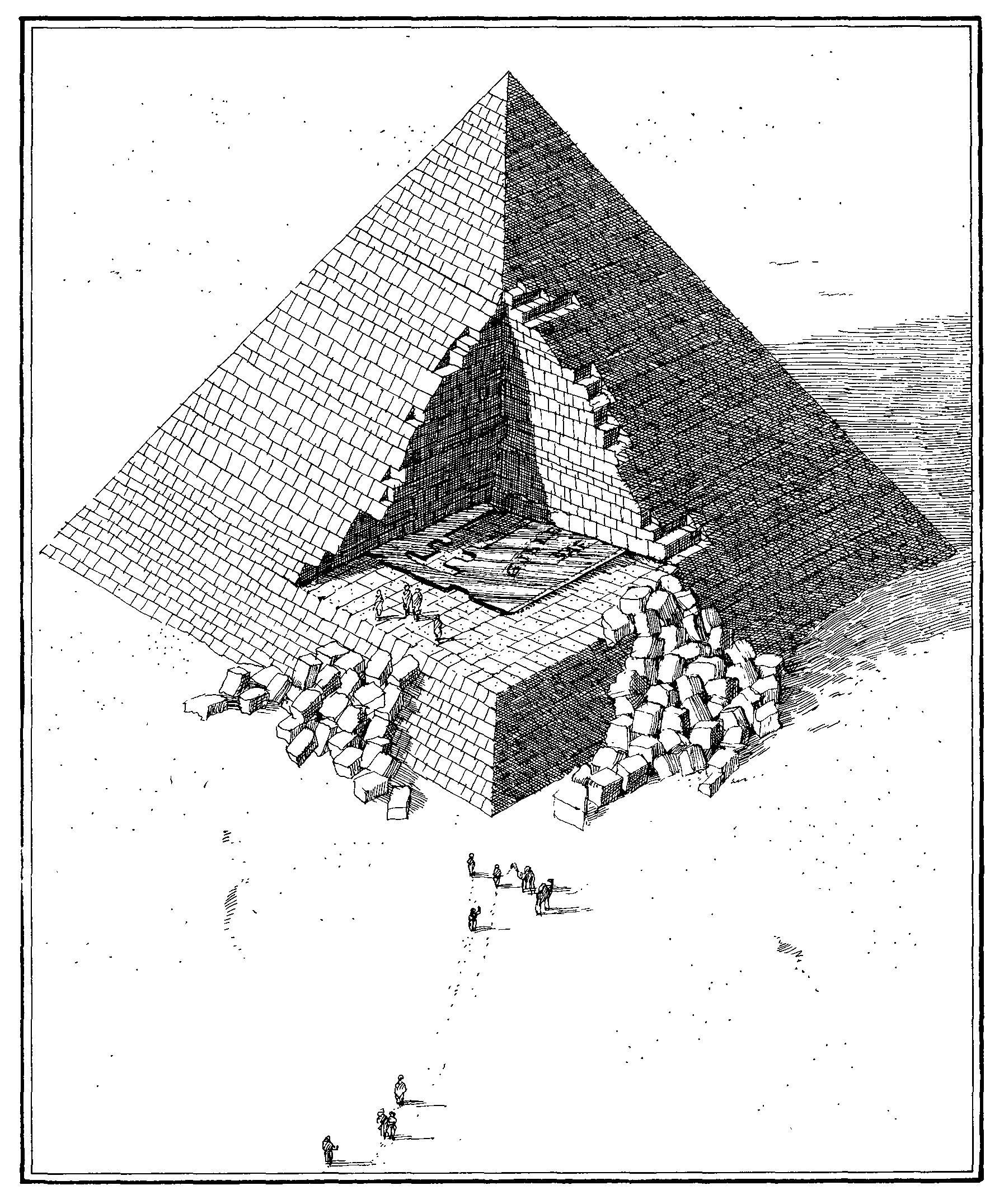
P LATE III Pharaonic Error.
(This plate was formerly titled Did anyone get that slaves number?)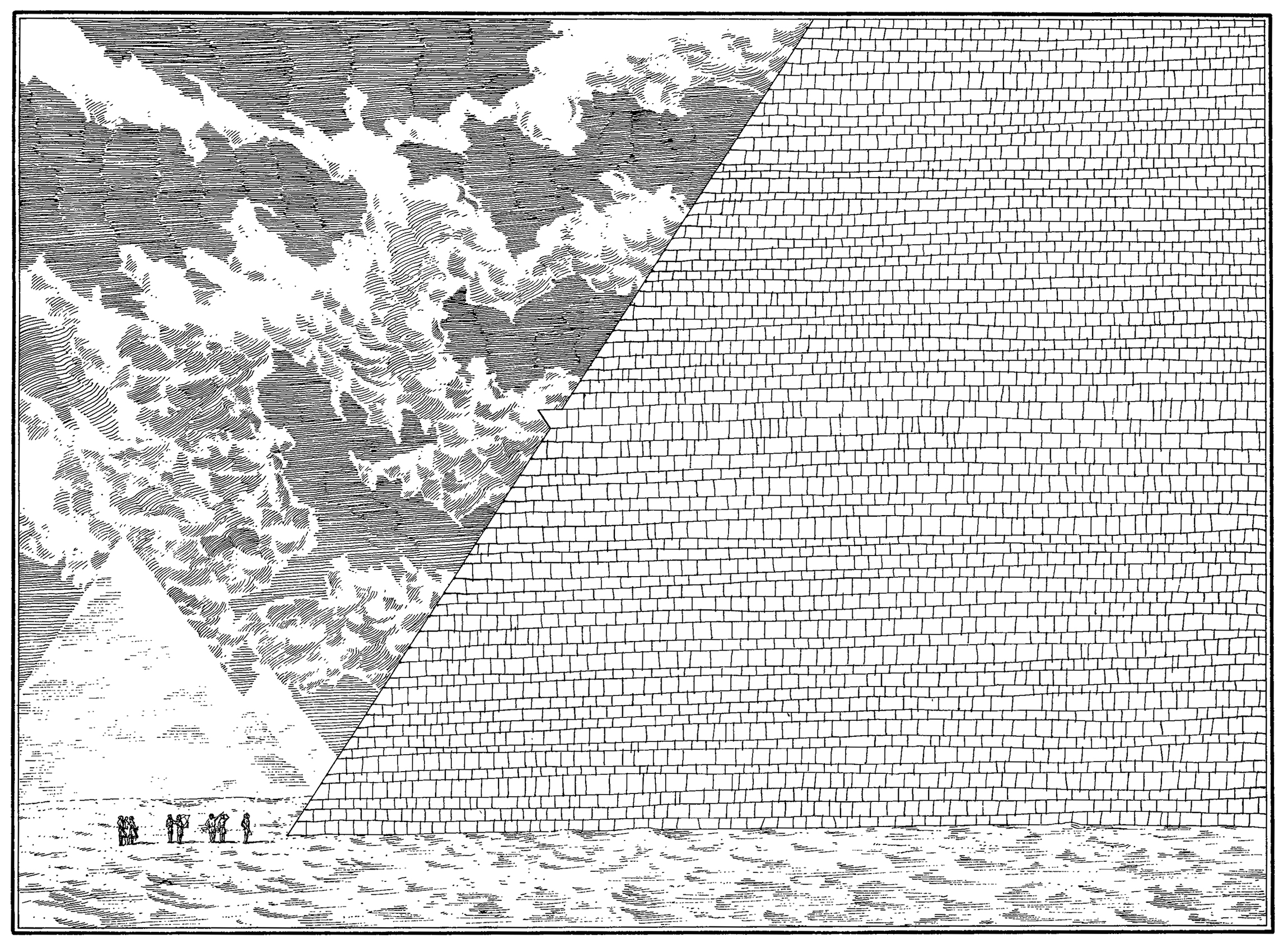
P LATE IV Those Amazing Egyptians.
(In gathering the research for this plate, Macaulay spent weeks at Giza working in the shadow of a large camel.)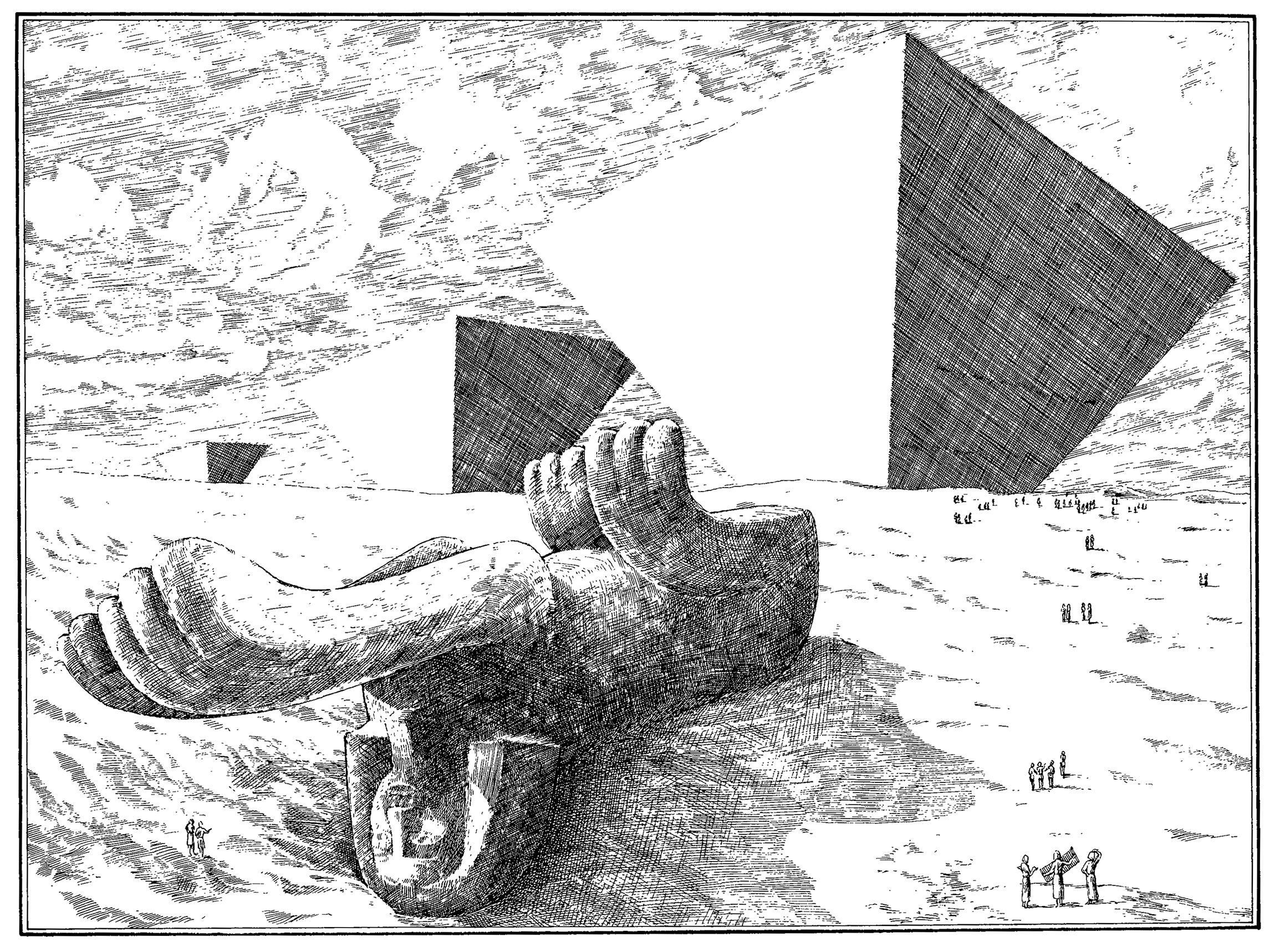
P LATE V Post Card from Pompeii.
(Owing to a series of strikes at the post office in Naples, this card didnt reach its destination until May of 1913.)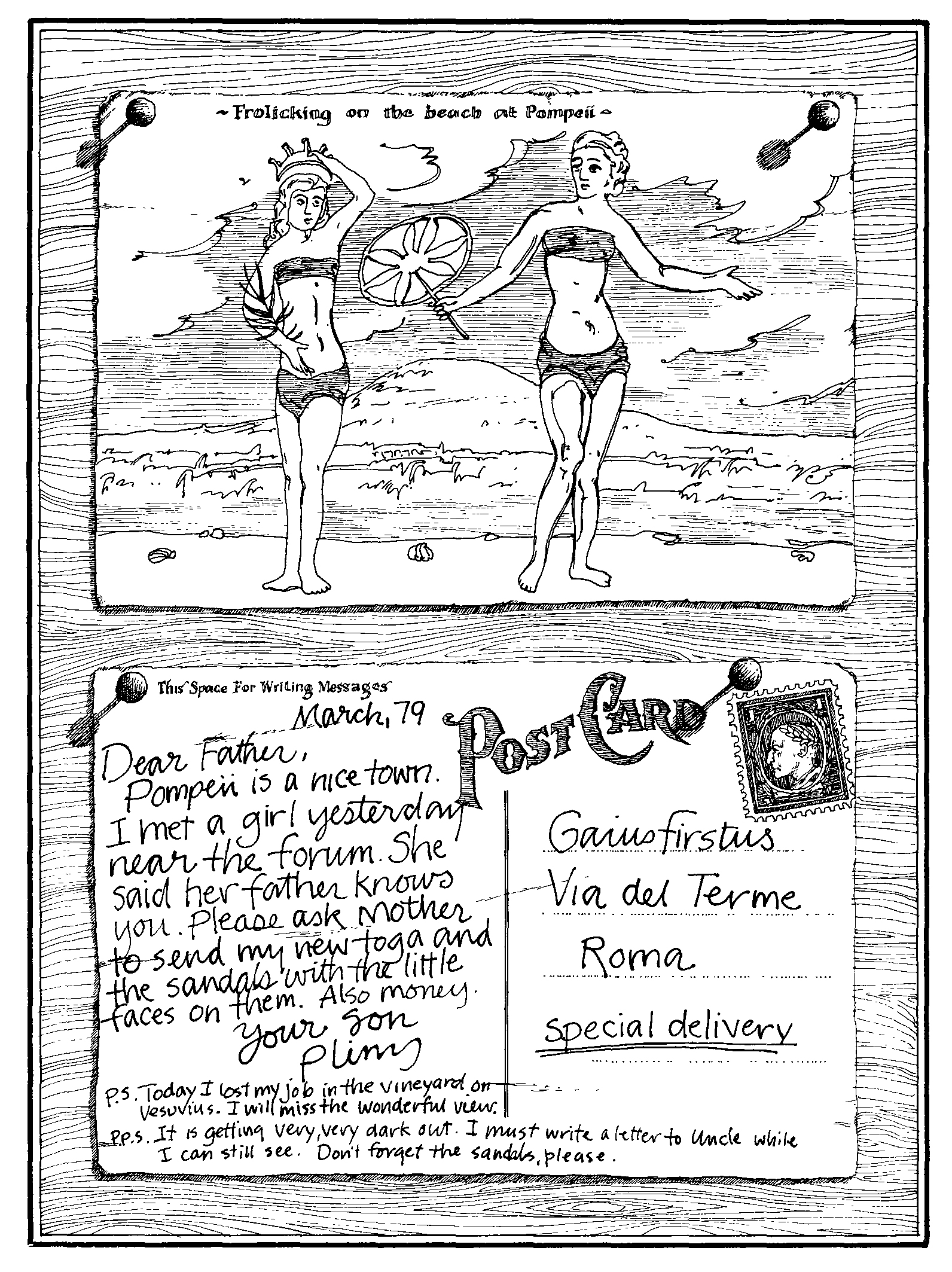
P LATE VI Late Roman Multipurpose Triumphal Arch.
(Although the bulk of the arch remains buried, Macaulay was reported to have singlehandedly excavated the money basket.)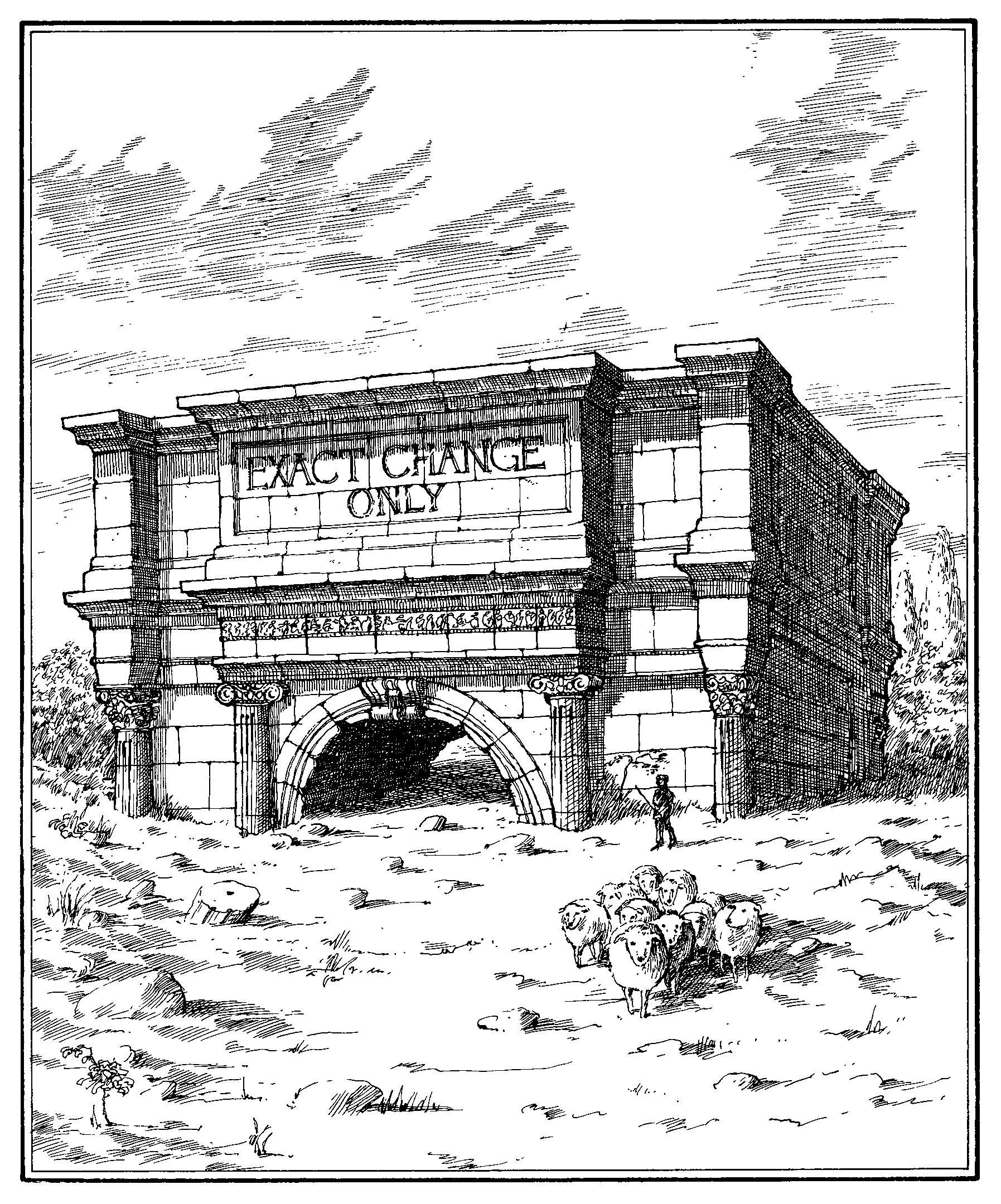
P LATE VII Roman Wall Painting.
(115 A.C., A.D. 200.)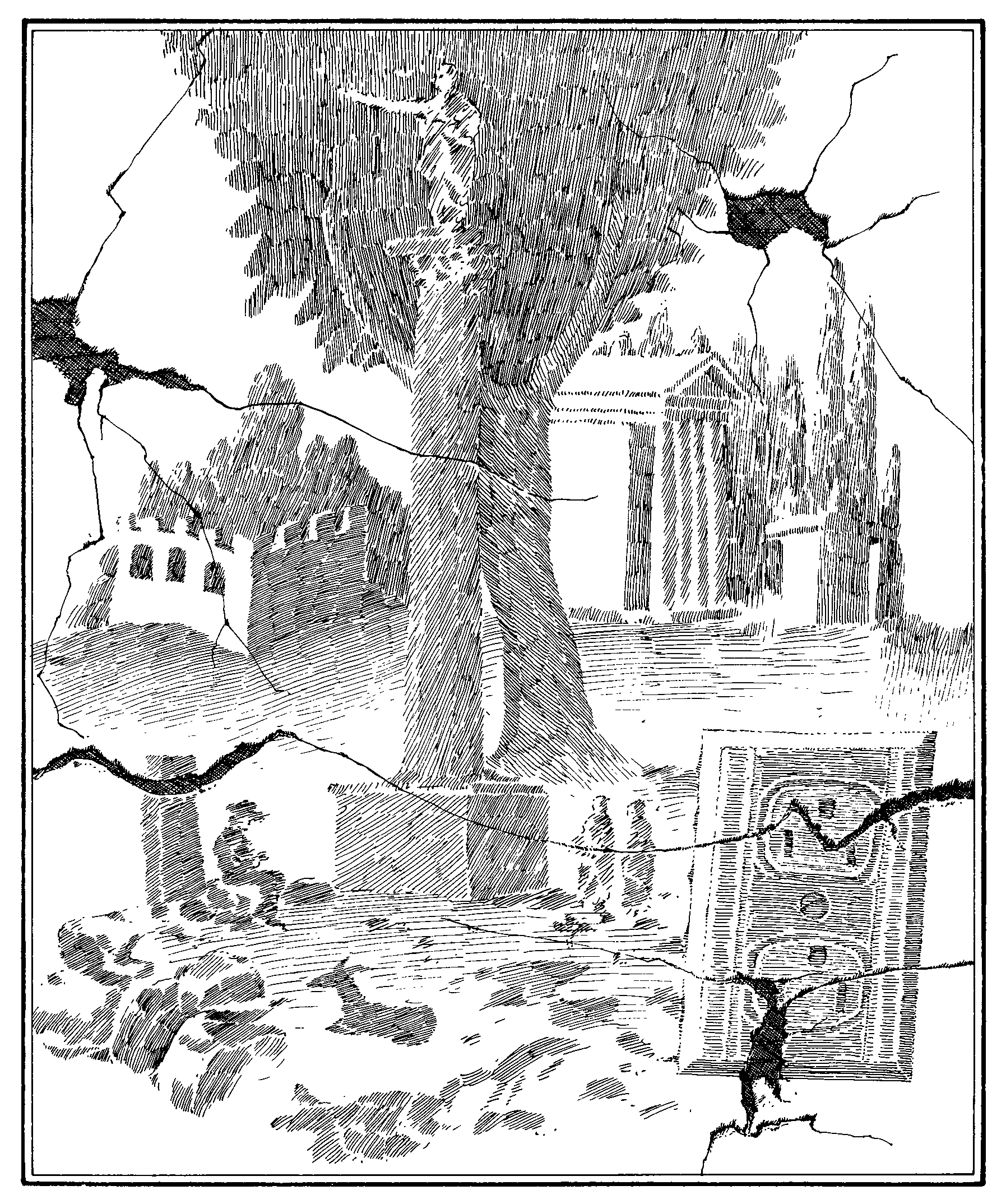
P LATE VIII The Great and Lesser Walls of China.
(This plate was formerly believed to represent the meeting of English and Metric.)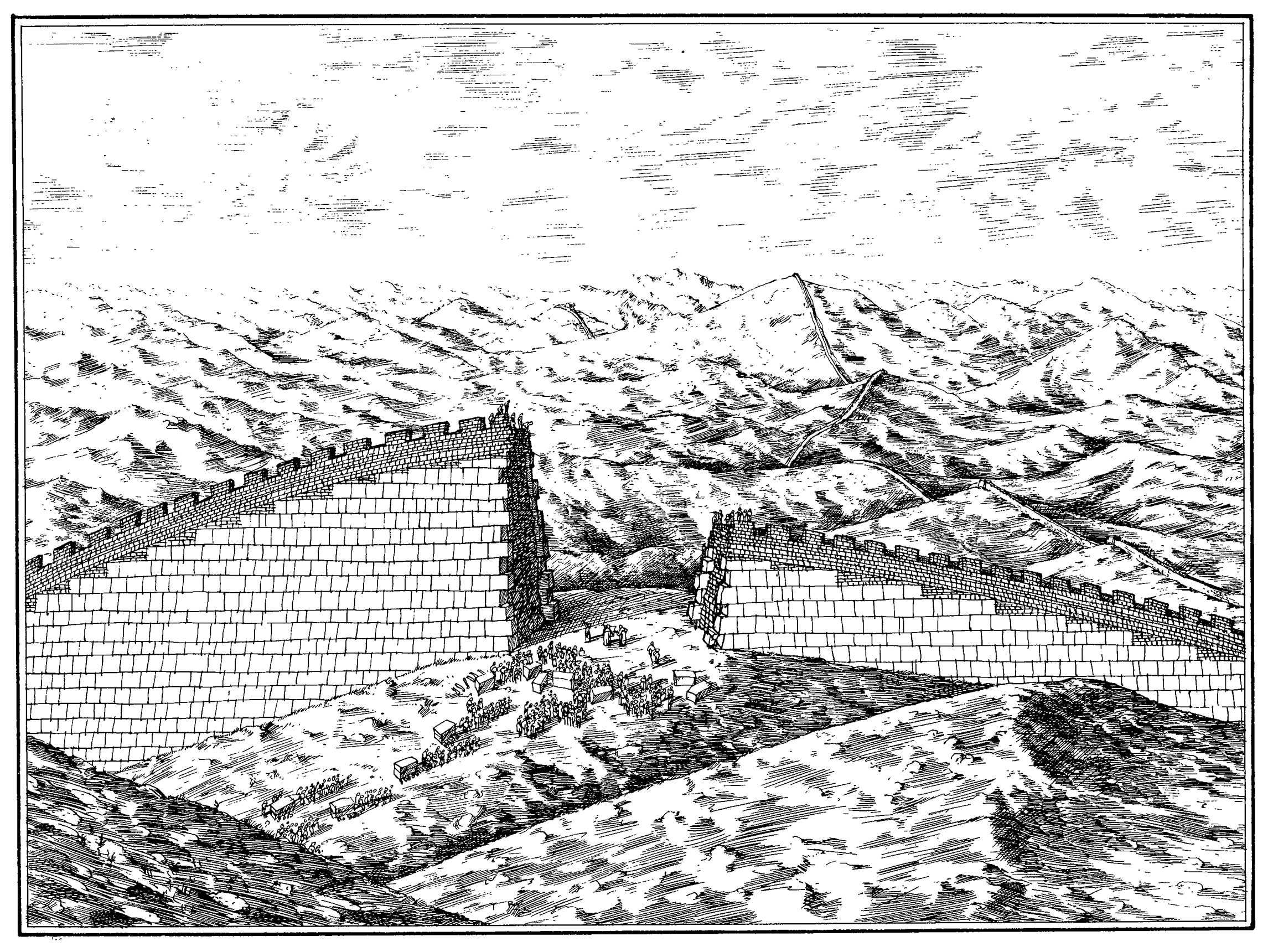
P LATE IX Leonardos Favorite Model.
(From snapshots found in the glove compartment of an abandoned helicopter.)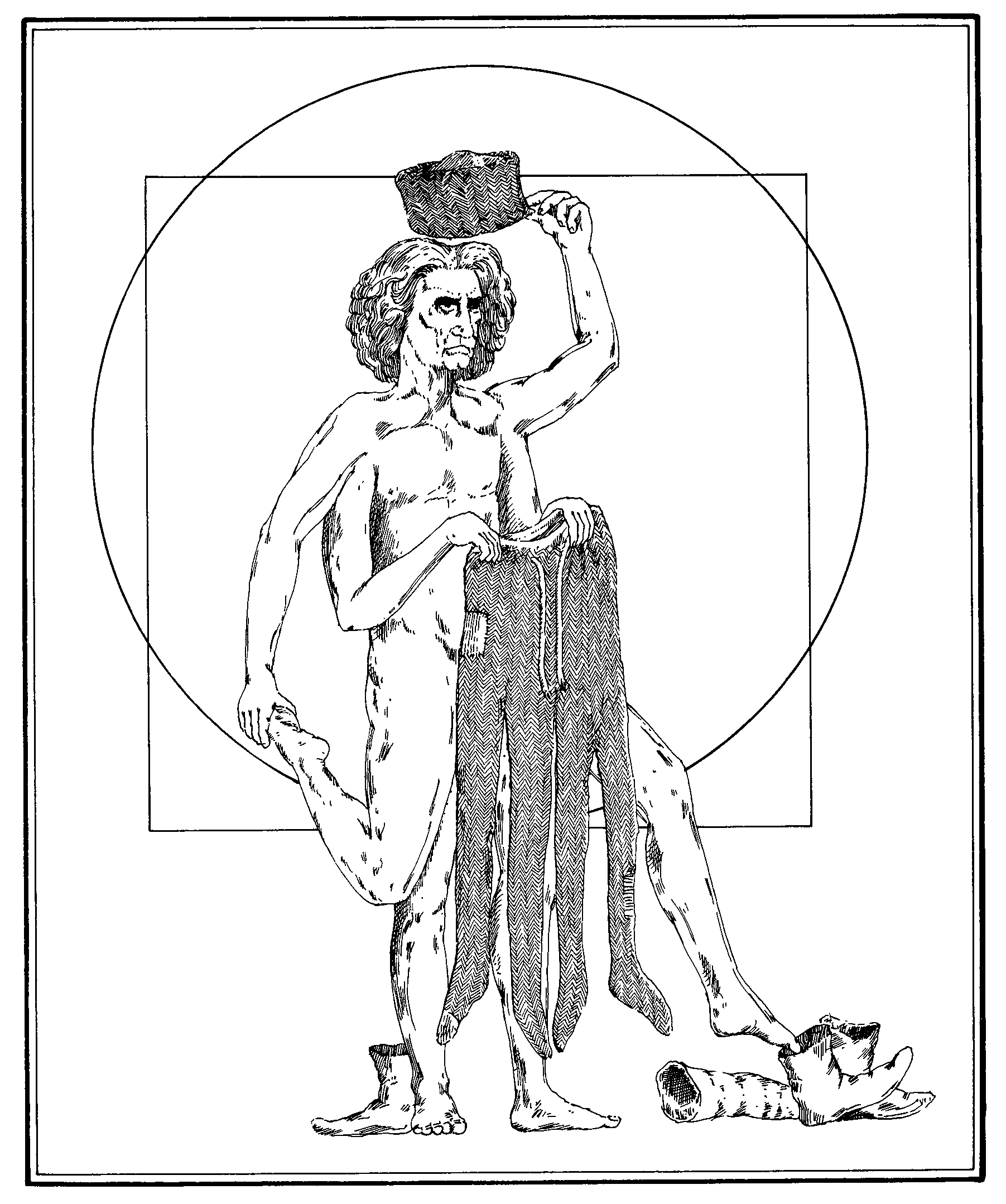
P LATE X Long dismissed as a simple connect-the-dots game, this plate was finally identified as the City Churches of Sir Christopher Wren as seen from 35,000 ft.
 Detail of Plate X
Detail of Plate X This enlargement reveals four of Wrens most famous churches.
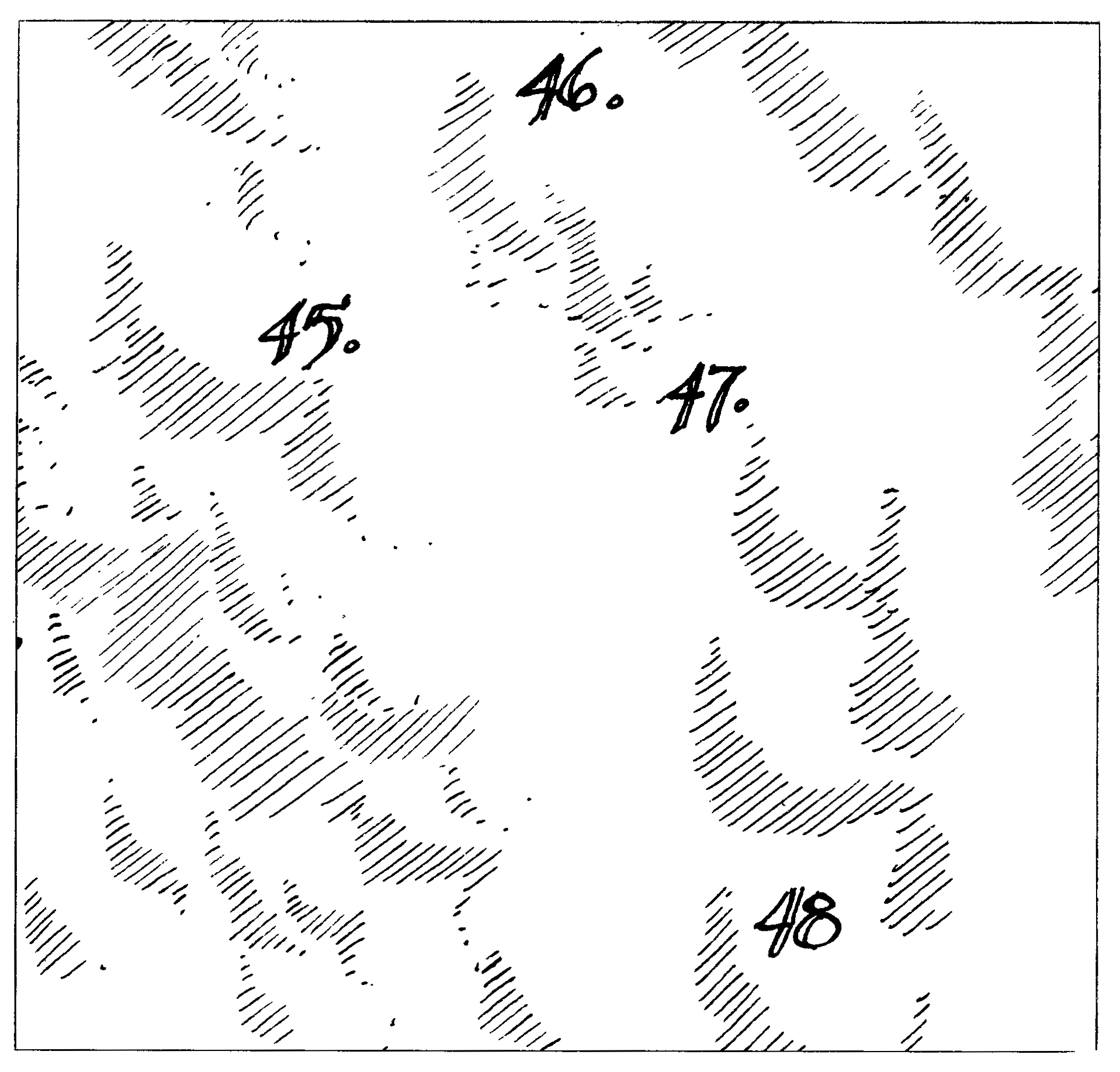
P LATE XI Early Work on the Grand Canyon.
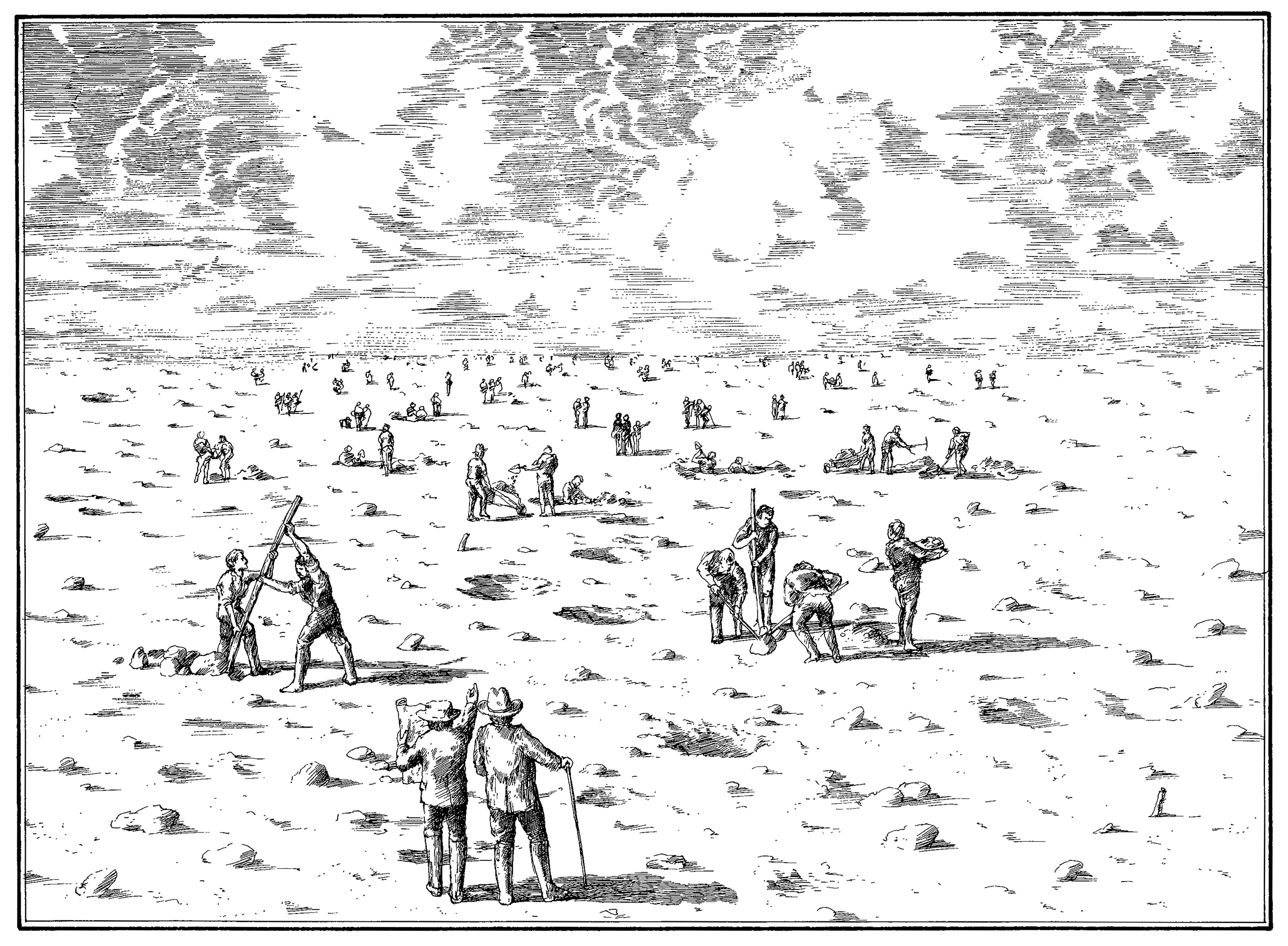
P LATE XII Tour-i-fell.

P LATE XIII LArc de Defeat.
(A project designed for Paris, Maine, in 1783 and almost immediately abandoned.)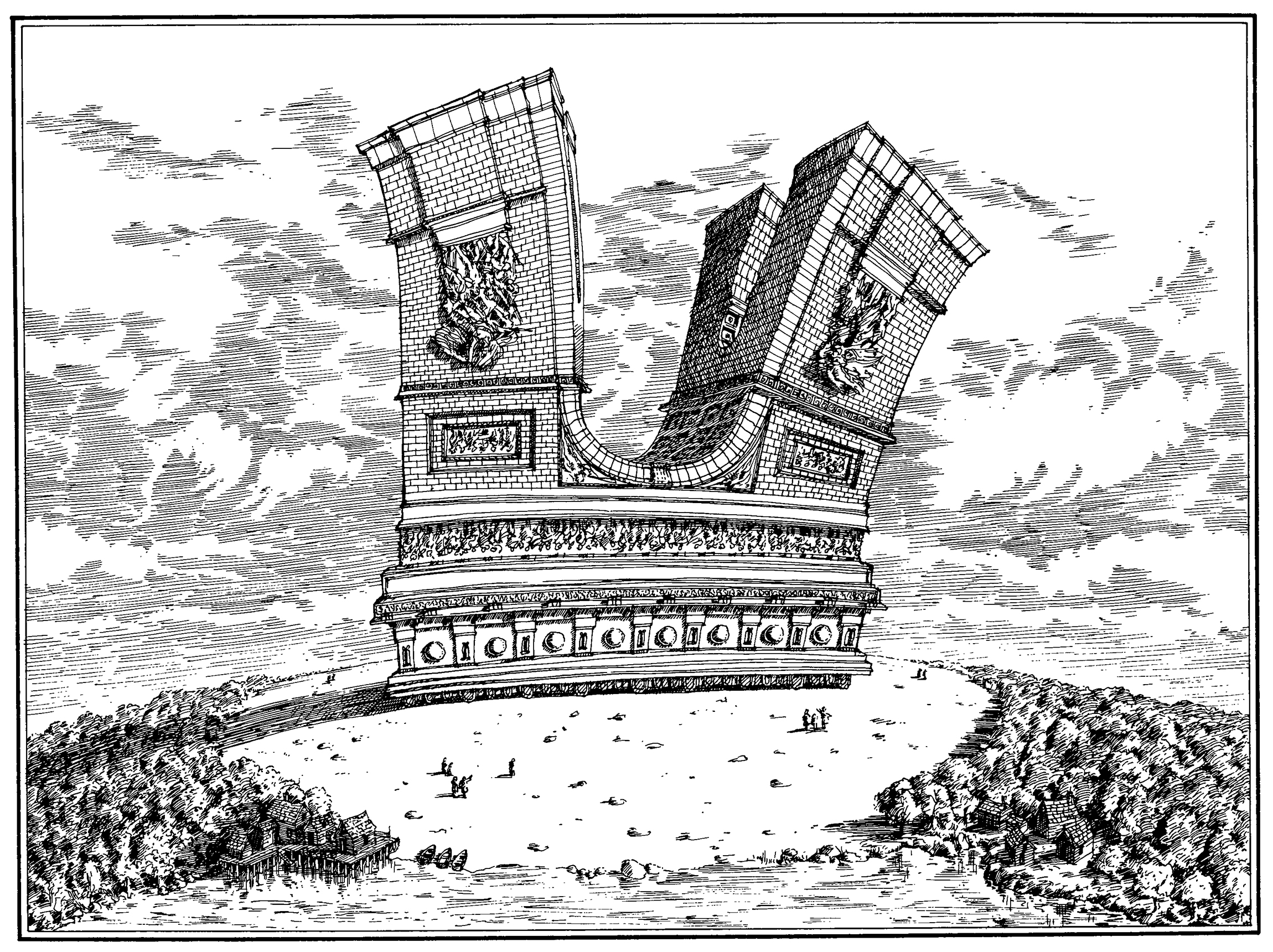
P LATE XIV Intellectuals Visiting the Tomb of the Unknown Architect.
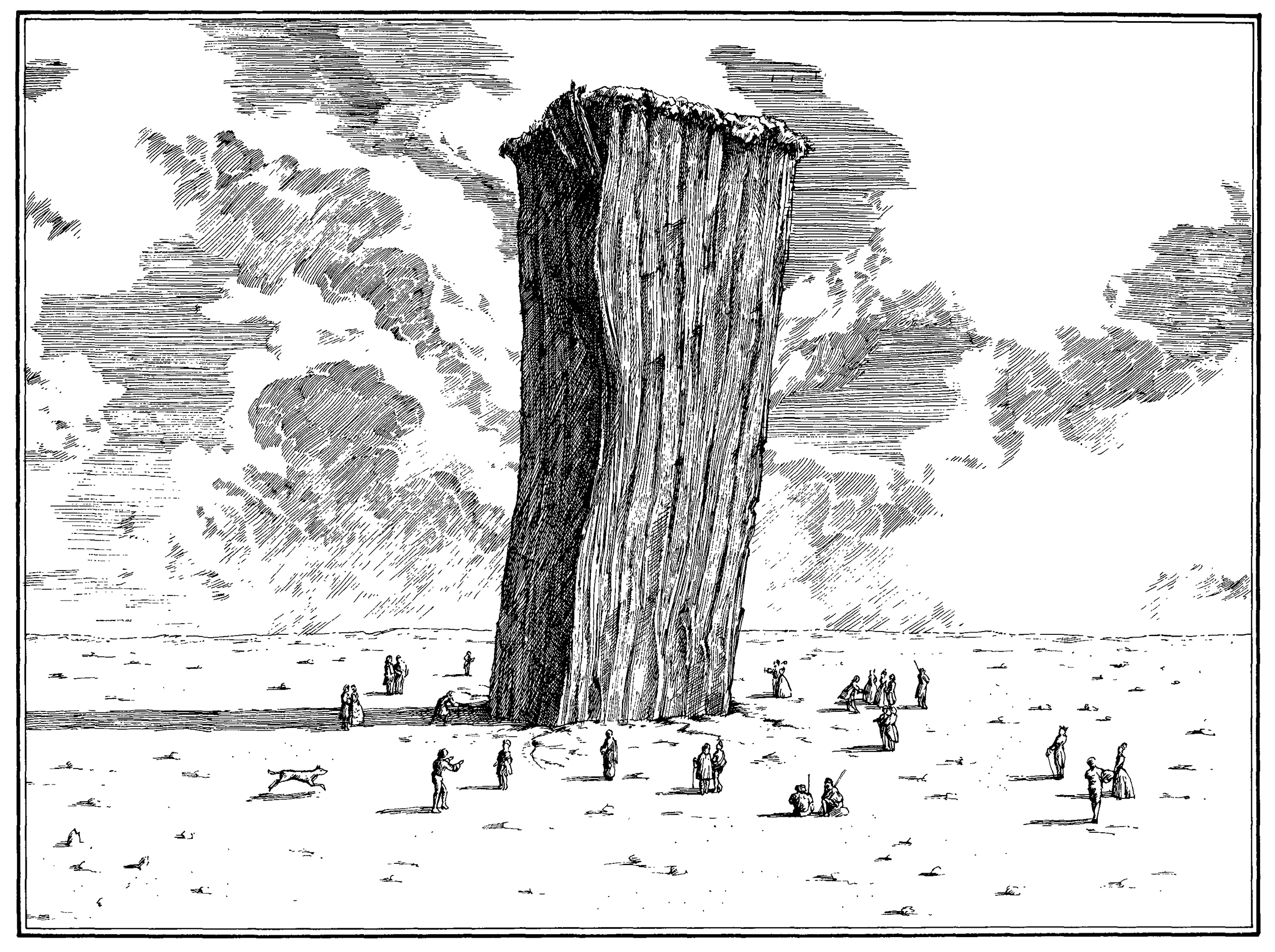
P LATE XV Locating the Vanishing Point.
(June 8, 1874)
P LATE XVI Falling Water.
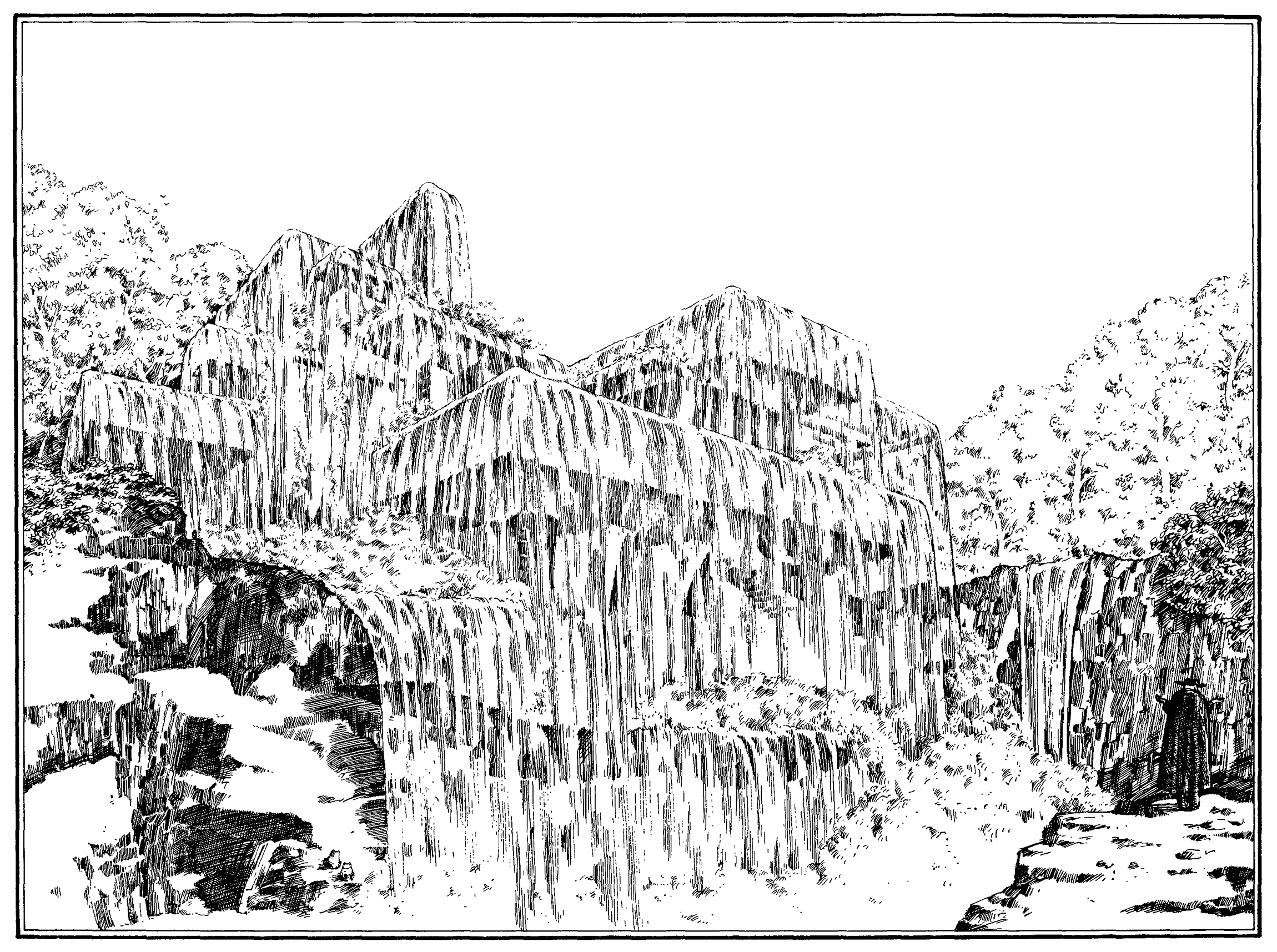
P LATE XVII Cinder Block.
(From the Garden of Architectural Delights.)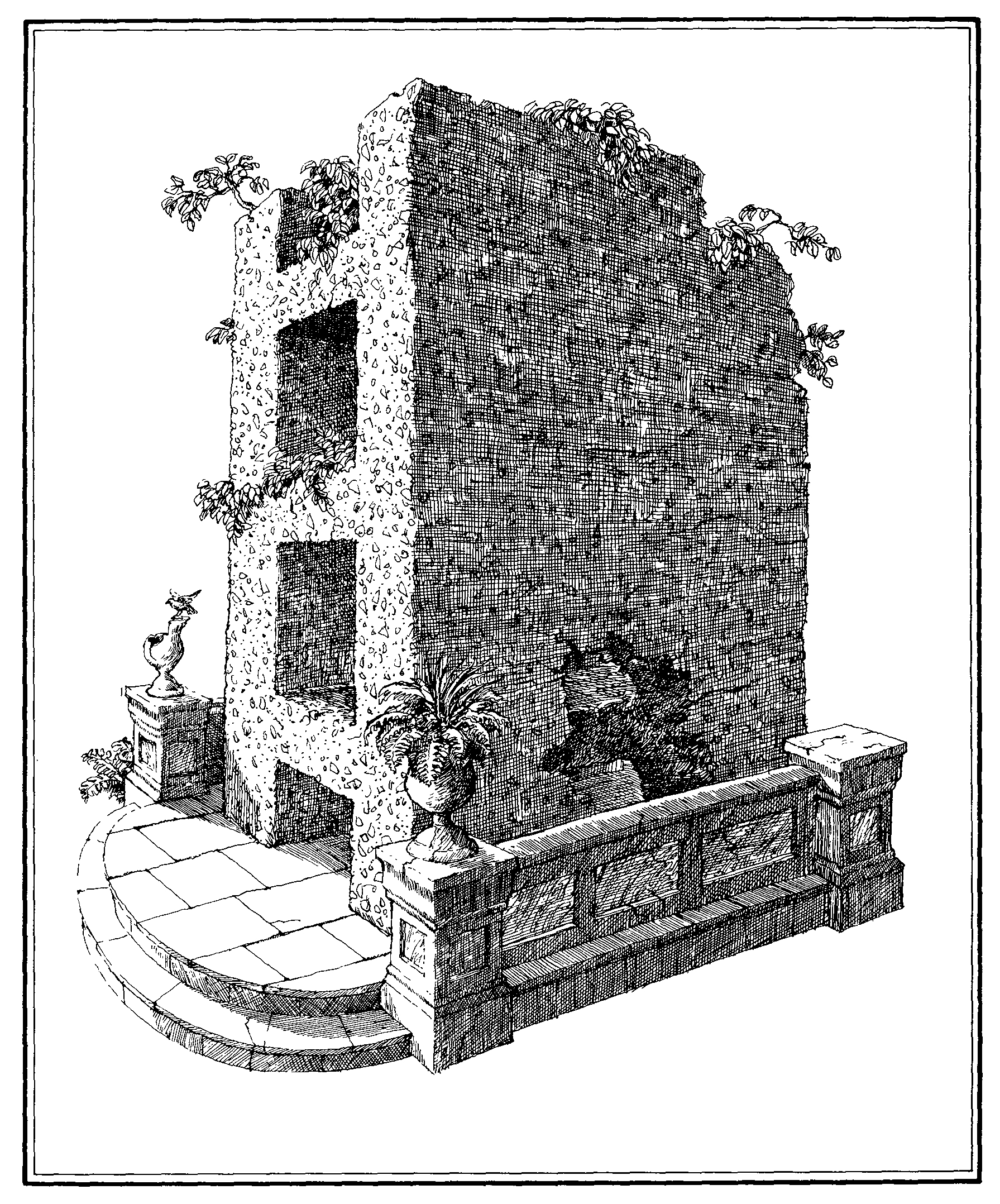 Next page
Next page
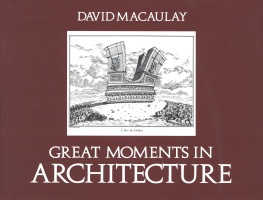




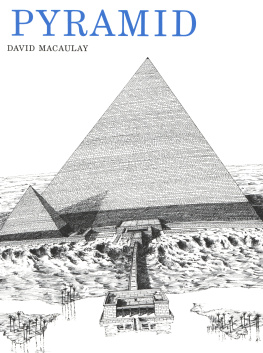


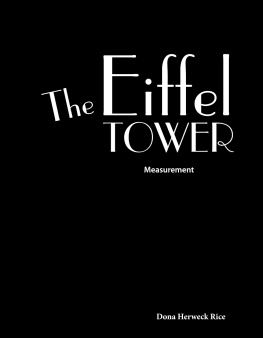
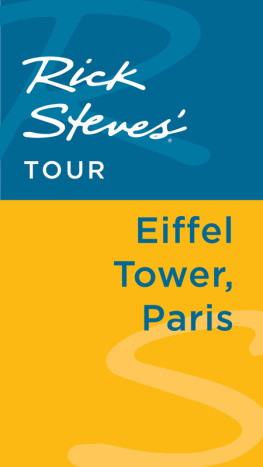
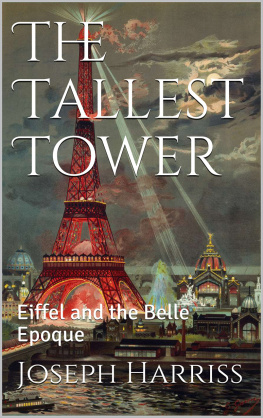
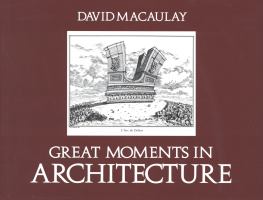
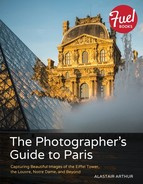

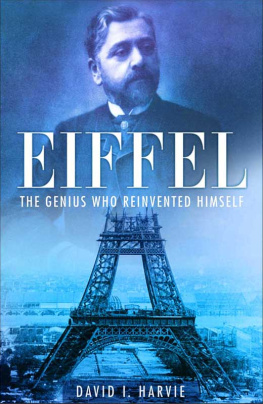

 P LATE I One of countless identical fragments from Egyptian relief carvings of the 42nd dynasty.
P LATE I One of countless identical fragments from Egyptian relief carvings of the 42nd dynasty.  P LATE II The Secret of the Pyramid Revealed. (For a closer shave.)
P LATE II The Secret of the Pyramid Revealed. (For a closer shave.) P LATE III Pharaonic Error. (This plate was formerly titled Did anyone get that slaves number?)
P LATE III Pharaonic Error. (This plate was formerly titled Did anyone get that slaves number?) P LATE IV Those Amazing Egyptians. (In gathering the research for this plate, Macaulay spent weeks at Giza working in the shadow of a large camel.)
P LATE IV Those Amazing Egyptians. (In gathering the research for this plate, Macaulay spent weeks at Giza working in the shadow of a large camel.) P LATE V Post Card from Pompeii. (Owing to a series of strikes at the post office in Naples, this card didnt reach its destination until May of 1913.)
P LATE V Post Card from Pompeii. (Owing to a series of strikes at the post office in Naples, this card didnt reach its destination until May of 1913.) P LATE VI Late Roman Multipurpose Triumphal Arch. (Although the bulk of the arch remains buried, Macaulay was reported to have singlehandedly excavated the money basket.)
P LATE VI Late Roman Multipurpose Triumphal Arch. (Although the bulk of the arch remains buried, Macaulay was reported to have singlehandedly excavated the money basket.) P LATE VII Roman Wall Painting.
P LATE VII Roman Wall Painting. P LATE VIII The Great and Lesser Walls of China. (This plate was formerly believed to represent the meeting of English and Metric.)
P LATE VIII The Great and Lesser Walls of China. (This plate was formerly believed to represent the meeting of English and Metric.) P LATE IX Leonardos Favorite Model.
P LATE IX Leonardos Favorite Model. P LATE X Long dismissed as a simple connect-the-dots game, this plate was finally identified as the City Churches of Sir Christopher Wren as seen from 35,000 ft.
P LATE X Long dismissed as a simple connect-the-dots game, this plate was finally identified as the City Churches of Sir Christopher Wren as seen from 35,000 ft.  Detail of Plate X This enlargement reveals four of Wrens most famous churches.
Detail of Plate X This enlargement reveals four of Wrens most famous churches.  P LATE XI Early Work on the Grand Canyon.
P LATE XI Early Work on the Grand Canyon.  P LATE XII Tour-i-fell.
P LATE XII Tour-i-fell.  P LATE XIII LArc de Defeat. (A project designed for Paris, Maine, in 1783 and almost immediately abandoned.)
P LATE XIII LArc de Defeat. (A project designed for Paris, Maine, in 1783 and almost immediately abandoned.) P LATE XIV Intellectuals Visiting the Tomb of the Unknown Architect.
P LATE XIV Intellectuals Visiting the Tomb of the Unknown Architect.  P LATE XV Locating the Vanishing Point. (June 8, 1874)
P LATE XV Locating the Vanishing Point. (June 8, 1874) P LATE XVI Falling Water.
P LATE XVI Falling Water.  P LATE XVII Cinder Block. (From the Garden of Architectural Delights.)
P LATE XVII Cinder Block. (From the Garden of Architectural Delights.)